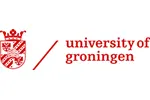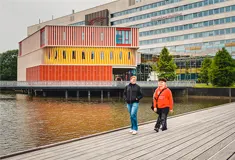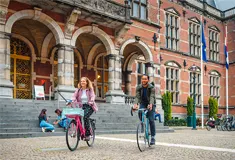About Ecology and Evolution, Master Degree - at University of Groningen
Which organisms are able to adapt to global change? How do birds decide when and where to migrate? When and why do individual differences in physiology or behaviour evolve?
This Master's degree programme has a selection procedure.
During the two-year Master's programme Ecology and Evolution you will gain insight into the living organism in relation to its environment. Ecology and evolution are strongly interdependent: without ecology, we cannot really understand natural selection; and without evolution, we cannot really understand the properties of organisms and their interaction with the environment. Ecology and evolution are relevant for all domains of the life sciences.
Ecology and evolutionary biology play a crucial role in facing the grand challenges of our time. This includes the development of realistic plans for coping with the implications of global change, for stopping the alarming biodiversity loss, for designing evolutionarily stable strategies to set-up a sustainable society, and for developing evolution-informed medical treatment. The research fields of ecology and evolution are highly dynamic. Powerful new techniques (e.g. GPS-tracking of migrating birds over the whole planet; remote sensing; tracking of individual cells in a culture of micro-organisms; genome-wide sequencing; individual-based simulations; new methods to analyse 'big data') allow us to resolve long-standing puzzles.
These new approaches lead to new insights and concepts that change our way of thinking, including a range of new integrative disciplines (e.g. evo-devo; evolutionary medicine; evolutionary community ecology; ecological immunology; evolutionary systems biology; adaptation and conservation genomics; evolutionary psychology). With this Master's programme, we aim to educate the new generation of scientists in ecology and evolution, both those who want to study the big fundamental questions in all domains of the life sciences and those who want to contribute to solving the grand challenges of our time.
The Master's degree programme Ecology and Evolution is offered by the Groningen Institute for Evolutionary Life Sciences (GELIFES), which conducts internationally recognized research in a unique diversity of areas relevant for ecology and evolution, including conservation biology, community ecology, microbial ecology, marine biology, evolutionary genetics and genomics, evolutionary systems biology, ecophysiology, neurobiology, chronobiology, evolutionary medicine, behavioural ecology, animal personality research, social evolution, and theoretical biology. We study a wide array of species, from microbes, algae, plants and insects to vertebrates such as fish, birds, rodents, marine mammals, large herbivores and humans.
The selective Master's programme offers 2 specialized research tracks:
- Evolutionary Biology, that is strongly research-oriented and designed to provide an optimal preparation for a subsequent PhD and eventually a career in academic research;
- Ecology & Conservation, to educate the new generation of ecologists to contribute to understanding and solving the global ecological problems, as a scientist and practitioner in the field. In this programme, you will learn how organisms, populations and communities are affected by changing environmental conditions, and how this knowledge can contribute to successful ecological conservation and restoration programs.
The selective Master's programme is designed for students primarily aiming for a career in research, and who are able to keep up with the study pace of the cohort that starts in September. Students who aim for a career that focuses on the business and policy side of science are referred to our Master's programme Biology. The Master's programme Biology is also an option for students who would like to start after the start studying during the academic year, but restrictions and deadlines apply.
Learn more about Ecology and Evolution, Master Degree - at University of Groningen
Visit course webpage 








